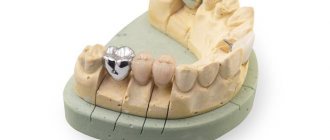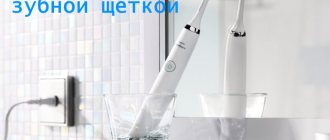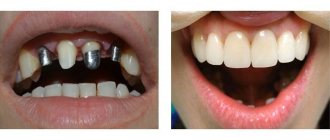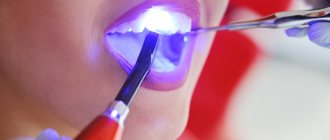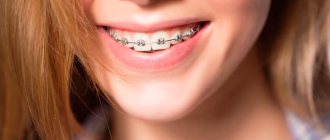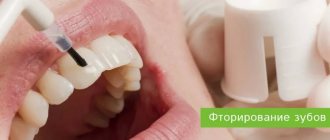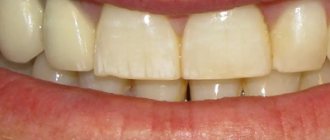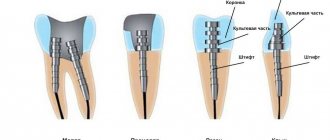How much can you eat after dentures?
After installing permanent crowns or inlays, you can drink water immediately, but eat after 1.5-2 hours. This is not related to the type of prosthesis or the adhesive used for fixation. During treatment, anesthesia is used - and it is very important that its effect wears off completely, otherwise chewing can injure the tongue or the inside of the cheeks.
After installing temporary crowns or inlays, you are allowed to eat food after 2-3 hours. However, in such a situation, it is strongly recommended not to put any stress on the restored tooth and try to chew food on the other side - not only at first, but throughout the entire period of wearing the temporary structure. It is impossible to put a load on such prostheses - they are not designed for it (naturally, if we are talking about crowns or inlays, which are installed for a maximum of 2-3 weeks, and not for a long time).
Tip #4: Adjust your diet
In order for the body to cleanse itself by accelerating intestinal motility, and for the crown to have a greater chance of coming out naturally, you can eat corn, whole grains, solid vegetables and fruits, and it is recommended to drink a lot of water. For example, the same corn passes through the intestines practically unchanged, which means that the crown has exactly the same chances.
If you swallow a crown, do not under any circumstances try to induce vomiting to get it out. This is fraught with the fact that in this case it can get into the respiratory tract and lungs, injuring the intestines, which is truly life-threatening.
What diet should you follow?
A lot depends on the original condition of the tooth to be restored. So, if the root is strong, approximately half of the tissues of the coronal part are preserved, and the prosthesis itself is installed correctly and professionally, there are no obvious restrictions in terms of load. Stump tabs, which are also used to strengthen the root system, fit very tightly, hold securely and do not require any special changes in nutrition. But if, for example, prosthetics were performed on a pin, the chewing pressure on the tooth must be reduced, since it can lead to displacement of the pin, and subsequently the crown.
In general, recommendations for any type of prosthetics from a nutritional point of view would be as follows:
- limiting the consumption of drinks high in caffeine (tea, coffee) and coloring pigments (wine, beets), especially if you have plastic and metal-plastic crowns that absorb dyes from food and drinks,
- Food that is too cold or too hot should be eaten with great caution - it can lead to cracks and chips of materials, and disruption of their adhesion (fixation). It is also impossible, for example, to immediately drink hot tea after cold ice cream - sudden temperature changes can again provoke the formation of cracks and destruction of dentures, weaken the effect of the fixing adhesive,
- Despite the fairly high strength of crowns and inlays, you need to protect them from excessive loads - it is better to first cut solid food into small pieces,
- teeth with crowns should not be used to open the shells of nuts, such as pistachios,
- If you have dentures, it is recommended to avoid viscous and stringy foods, namely chewing gum and toffees, which can stick to crowns or inlays, and with excessive load and gradual deterioration of the fixation of the prosthesis can lead to its loss.
First of all, crowns that have an external coating that can break off need to be protected from mechanical loads - made of metal-plastic, metal-ceramic or zirconium coated with ceramic.
How dangerous is this?
A tooth is not a completely foreign body. This is a part of the victim’s body, which is also small and does not have serious dangerous properties such as toxicity. No human tooth is large enough to cause significant problems if it enters the stomach and esophagus.
It is very difficult to swallow the entire jaw
If you swallowed a tooth, you know about it, but you don’t feel it anywhere above the stomach, then there is nothing to worry about - it has already reached the center of the digestive system and will eventually come out naturally. The danger arises when a tooth gets stuck in the esophagus. It doesn’t matter whether it’s a solid tooth or a splinter, there is a high probability that it will have sharp edges. They are too small to seriously damage the mucous membrane of the throat, but they can cause panic and suffocation in sensitive people. It is not easy to push a tooth further out of the esophagus if it is stuck - those who have experienced such trouble associate their sensations with a fish bone stuck in the throat, only smaller.
The most dangerous situation is a tooth getting into the windpipe. This rarely happens, but it is necessary to act quickly and clearly. No fatal cases have been recorded, but the victim may even lose consciousness due to lack of oxygen and a panic attack.
What hygiene products are needed and can be used?
What hygiene products are needed and can be used?
| NAME | DESCRIPTION |
| Toothbrush | The bristles should be soft or medium hard. Too hard ones can damage the material and leave small scratches on it, in which plaque will accumulate. The use of an ultrasonic or mechanical brush is allowed, but it is very important to carefully select attachments - they should not have plastic elements (often used to better clean or whiten teeth). |
| Toothpaste | It is better to use prophylactic toothpaste WITHOUT abrasive substances - they can damage the materials. |
| Irrigator | It will allow you to remove food debris from the interdental spaces, especially if several crowns are installed in a row or dental bridges are present - in such a situation, a stream of water will remove food debris from under the structure. |
| Mouthwash | It should be selected in accordance with existing oral problems - for example, to combat gum inflammation, to strengthen enamel or to prevent plaque accumulation. That is, regardless of whether you have dentures or not. |
How to properly brush teeth with dentures
The presence of crowns, inlays or dental bridges in your mouth should not embarrass you: you need to care for them and all other teeth in the same way as you did before:
- it is necessary to clean the oral cavity of plaque 2 times a day - morning and evening: using a toothbrush, make vertical movements from the gums to the cutting edge of the tooth, you can supplement such procedures with an irrigator,
- After each meal, you must use an irrigator, dental floss and interdental brushes (as indicated and with caution). Or at least rinse your mouth with a special product, or with regular warm water.
In addition to the restored teeth, living teeth and gums remained in the oral cavity. They need to be looked after, otherwise the risk of their premature loss increases. Remember that gum disease is five times more likely to lead to tooth loss than regular tooth decay and its consequences.
Comments
I have a crown on a post. If I suddenly accidentally swallow it along with the pin, how dangerous will it be?
Alexey (03/09/2019 at 21:40) Reply to comment
- Dear Alexey. Swallowing a pin is a very rare and dangerous situation. This can only happen if the dentist did a poor job installing it. If such a situation does occur, then it will be necessary to take an x-ray and get an emergency consultation with a gastroenterologist, because the consequences can be tragic - damage to the walls of the stomach and intestines, internal bleeding. Most often, to remove the pin, doctors resort to surgery, i.e. perform a surgical operation.
Editorial staff of the portal UltraSmile.ru (03/11/2019 at 09:11) Reply to comment
My son had a temporary filling with arsenic placed on Friday, and he swallowed it on Saturday. We won't be able to see the doctor until Monday. What to do and why is it dangerous?
Victoria Kalinina (03/17/2019 at 11:47 am) Reply to comment
- Dear Victoria. Modern arsenic pastes contain small amounts of toxins and are quite safe, and their dosage is too minimal to cause significant harm to the body. But in some cases, arsenic can cause poisoning and intoxication of the body, nausea and vomiting, and allergic reactions in a child. Therefore, it is recommended to rinse the stomach, give the child sorbents and antihistamines, and carefully monitor his condition. If necessary, call an ambulance or consult a pediatrician on Monday.
Editorial staff of the portal UltraSmile.ru (03/24/2019 at 09:18) Reply to comment
Does it make a difference what you swallowed: a piece of a natural tooth or an artificial crown?
Vlasov Yu.V. (04/12/2019 at 16:13) Reply to comment
- There is practically no difference, the consequences can be similar. But some experts believe that a swallowed piece of a natural tooth will not cause any complications in 100% of cases, but artificial material may be incompatible with the body and its swallowing is often fraught with unpleasant consequences.
Editorial staff of the portal UltraSmile.ru (04/15/2019 at 08:57) Reply to comment
My child swallowed a baby tooth two days ago and feels great, but for some reason nothing comes out naturally. When is it time to start worrying?
Alina (04/28/2019 at 15:04) Reply to comment
- Dear Alina, let your child eat more solid vegetables and fruits, whole grains, and drink warm water and milk more often. If the problem is not resolved within 4-7 days, then to completely remove the issue and calm down, contact your pediatrician.
Editorial staff of the portal UltraSmile.ru (05/04/2019 at 11:02) Reply to comment
I, 10/22/20, swallowed a dental bridge of 7 teeth along with food. A painful state, now everything is behind them. 02.11.20 they left.
Natalya (11/02/2020 at 12:40 pm) Reply to comment
Write your comment Cancel reply
Can I use dental floss?
If you have any dentures in your mouth, you should either refuse floss completely or use it too carefully. The crowns are fixed in such a way that natural micro-gaps between them are preserved, which require cleansing. However, when flossing, you should not make vertical movements - only horizontal ones. That is, you need to insert the thread not from the cutting edge, gradually moving towards the gums, but place its tip directly into the gap - make several horizontal movements and remove it in a similar way.
Do not use the prosthesis if it has a chip or crack - try to see a doctor as soon as possible to restore the integrity of the crown/inlay or for a prompt replacement. Otherwise, there is a high risk of developing inflammatory processes under the prosthesis.
Is it possible to carry out professional hygiene with crowns?
Both teeth and any dentures require high-quality hygiene. Once or twice a year, have your teeth cleaned with an ultrasound. But Air Flow is prohibited in the presence of multiple crowns, since the drug contains abrasive particles that can damage the smooth surface of the dentures. In such a situation, you should definitely warn the doctor about the presence of crowns or bridges - if there are few of them, you can simply bypass them and carry out Air Flow cleaning in another area.
Is it possible to smoke if you have dentures?
There is no direct ban on smoking, but you need to understand that nicotine leads to the formation of a large amount of plaque - both on real and artificial teeth. It is difficult to remove; the gums also suffer because of it - they do not receive enough nutrients, atrophy and expose the tooth roots. If you can’t quit smoking, then try to at least reduce the number of cigarettes you consume to a minimum, at the same time improve hygiene at home, and also visit a doctor every 2-3 months for comprehensive oral hygiene.
Stock
-27%
Teeth in 1 day on Straumann implants using ProArch technology!
300,000 rub. 220,000 rub.
get -9 %
BASAL COMPLEX - Restoration of teeth on 1 jaw in 3 days 330,000 rub.
300,000 rub.
get -47 %
Dental implant Osstem 35,000 rub.
18500 rub.
get -47 %
Dental implantation RUB 18,500.
until 01/15/2022 35,000 rub. 18500 rub. get
How do you know when it’s time to change crowns?
Cracks, poor fixation on the tooth, discoloration, discomfort when closing the jaws - all these are reasons to consult a doctor. A crown can fail either after 2-3 years or after 10-15 years - a lot depends on the initial situation, the professionalism of the doctor, the quality of the material, as well as on how the teeth were used. We strongly recommend visiting the dentist 1-2 times a year to examine the oral cavity - the doctor will be able to assess the quality of fixation of the prosthesis and its integrity. This way, you won’t have to guess how long the crowns will last, but will be able to understand exactly when you need to worry about replacing them.
All recommendations boil down to the fact that crowns, inlays and bridges, like living teeth, require regular care and careful treatment. Do not forget that in addition to artificial crowns, living tissues remain in the oral cavity - these are gums and ligaments that hold the root of the tooth. All of them are susceptible to inflammatory processes, which can lead to the loss of the remaining living tooth along with the installed prosthesis.
Tip #5: Make an appointment with your dentist
The dentist will help you restore the damage and restore the beauty and functionality of your tooth. But here it is important to take into account that if the artificial crown has been swallowed completely or a large part of it is missing, then it will have to be completely replaced, because In this case, it will be simply impossible to restore the structure. If the top layer has chipped, for example, the crown was made of metal-ceramics or ceramics, and a small piece of ceramic has fallen off, then the doctor will carry out the restoration right at the appointment.
A chip in the upper can be corrected by restoration without removing the crown.
Similarly, a crown will have to be installed on a decayed natural tooth, or, depending on the scale of the destruction, it will be possible to get away with either a composite build-up, or the tooth will have to be built up first using a pin or stump tab.
In general, be sure to visit the dentist every six months. After all, then a specialist will be able to identify the problem in time during a preventive examination and eliminate it before an unpleasant situation associated with swallowing a crown occurs to you. If you ignore going to the doctor, then you simply may not notice, for example, that a tooth has become loose or needs restoration, or that an artificial crown has already expired or needs to be replaced.
Notice
: Undefined variable: post_id in
/home/c/ch75405/public_html/wp-content/themes/UltraSmile/single-item.php
on line
45 Notice
: Undefined variable: full in
/home/c/ch75405/public_html/wp-content /themes/UltraSmile/single-item.php
on line
46
Rate this article:
( 4 ratings, average: 4.75 out of 5)
crown
